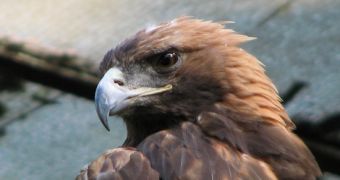Yesterday, the US Department of Justice announced that Duke Energy Renewables Inc. had agreed to plead guilty to charges filed against it for violating ongoing legislation concerning the protection of hundreds of bird species.
Thus, the company admitted that its wind farms in Converse Country, Wyoming were responsible for the death of 14 golden eagles and 149 other protected birds. The birds all died between 2009 and 2013.
The company also said that, ever since it first began work on these green energy projects, it was aware of the fact that the wind turbines could end up killing birds, and stressed that, over the years, it had done its best to minimize the hazard.
“Duke Energy Renewables Inc., a subsidiary of Duke Energy Corp., based in Charlotte, N.C., pleaded guilty in U.S. District Court in Wyoming today to violating the federal Migratory Bird Treaty Act (MBTA) in connection with the deaths of protected birds, including golden eagles, at two of the company’s wind projects in Wyoming,” the US Department of Justice writes in a press release.
“This case represents the first ever criminal enforcement of the Migratory Bird Treaty Act for unpermitted avian takings at wind projects,” it adds.
Duke Energy Renewables Inc. is now expected to pay fines, restitution and community service amounting to $1 million (€0.74 million).
The fines will be paid to several conservation groups, including the North American Wetlands Conservation Fund, the Wyoming Game and Fish Department and the National Fish and Wildlife Foundation.
What's more, the company must implement measures intended to minimize the risk that its wind turbines pose to birds in the region.
“We deeply regret the impacts to golden eagles at two of our wind facilities. We have always self reported all incidents, and from the time we discovered the first fatality, we’ve been working closely with the Fish and Wildlife Service to take proactive steps to correct the problem,” the company's President, Greg Wolf, said in a statement.
“No form of energy generation, or human activity for that matter, is completely free of impacts and wind energy is no exception,” he added.

 14 DAY TRIAL //
14 DAY TRIAL //